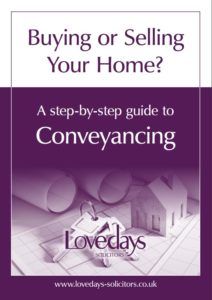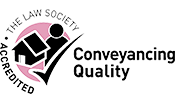- Home
- Personal Services
- Advice for Employees
- Conveyancing
- Dispute Resolution
- Boundary Disputes
- Dealing with Rent Arrears
- Japanese Knotweed Claims
- Landlord and Tenant Disputes
- Landlord Harassment & Illegal Eviction
- Negligence Claims Against Builders & Developers
- New Build Property Disputes
- Noisy Neighbour Disputes
- Personal Debt Collection
- Property Misrepresentations Claims
- Rights of Way Disputes
- Section 21 No Fault Evictions
- TOLOTA Claims
- Tree & Hedge Neighbour Disputes
- Divorce and Separation
- Family Law
- Lasting Power of Attorney
- Licensing
- Probate Law
- Trusts
- Wills
- Business Services
- Reviews
- Make An Enquiry
- Cost and Service Information
- About Us
- Contact Us
Grant of Letters of Administration
If someone dies without leaving a valid Will behind, then it can be difficult to know how to deal with their estate. On these occasions, a Grant of Letters of Administration is needed in order to authorise someone else to act on the behalf of the deceased. This may also be necessary if no executor has been named in the Will or if they are unable to act.
If this is the case, then it is necessary to apply to the Court for a Grant of Letters of Administration in order for the legal administration of the estate to begin. The Probate Registry Will then issue the Letters of Administration, granting an administrator the legal authority to deal with the estate. This can be a difficult process which needs to be handled extremely carefully.
At Lovedays Solicitors, we have experience in dealing with the Grant of Letters of Administration and can help you through the application process and the administration of the estate in question to make sure the entire process is fair and legal at all times.
Understanding the Grant of Letters of Administration
A Grant of Letters of Administration gives someone the legal power to oversee the distribution of assets as well as the settling of debts and any other relevant responsibilities that are involved in handling the estate of someone who has passed away. Without this, an estate cannot be dealt with if no Will has been left behind, and this can lead to significant delays and complications in the entire process.
A Grant of Letters of Administration is different to a Grant of Probate as the Grant of Probate can only be issued to the named executors of the Will. However, a Grant of Letters of Administration entitles a beneficiary to apply to be the administrator.
As an executor is in charge of disposing of assets, transferring funds and paying debts, they will often not be allowed access to assets by financial institutions unless they have already obtained a grant of probate. This acts as legal confirmation that the Will they are in charge of is valid and officially registered by the court.
Letters of Administration are usually issued in cases of intestacy, and this is not done automatically, meaning that family members or other beneficiaries will need to apply to the court for Letters of Administration.
{quote}
Eligibility and Priority
When it comes to deciding on who should be granted the Letters of Administration, there is a strict list of priority that must be adhered to. Spouses or civil partners of the deceased will be given the greatest priority, followed by a child or grandchild of the deceased. After this, priority goes to the parents of the deceased, followed by their siblings or any nephews and nieces. After this, priority will go to any other relative of the person who has died. This can mean that any unmarried partners who are not named in the Will can be unable to act as an administrator in this situation.
An estate is called intestate when someone dies without leaving behind a valid Will. This means that the deceased has not decided on who their estate goes to, and so the intestacy will specify what should happen to it. In this case, priority will be given to a spouse or civil partner, followed by children and grandchildren, parents, brothers and sisters, grandparents and uncles and aunts. If the deceased person's partner was separated from them at the time of death but still remained married or in a civil partnership, they are still entitled to apply for Letters of Administration. However, if they were no longer a spouse or civil partner, then they will not be eligible to apply.
Steps to Obtain a Grant of Letters of Administration
Gathering Required Information
If you wish to obtain a Grant of Letters of Administration, there are a number of steps that you will need to go through. You will initially need a list of documentation before you make the application, including the death certificate, a valuation of the estate and details of any debts and assets that the estate holds. This means that the full estate can be properly valued and any inheritance tax that might be due can be calculated.
It is important that all of this information is gathered accurately and thoroughly as the application will be returned if it is not being completed properly or supported by the correct documents. As the process can be extremely difficult, stressful and lengthy, it is important that you make sure the application is correct the first time you lodge it in order to avoid any delays or uncertainty.
Application Process
In order to apply for a Grant of Letters of Administration, you will need to complete and submit Form PA1A. As part of the application, you will need to estimate the estate's value so that you can include the gross estate value, the net estate value, and the net qualifying value for Inheritance Tax. These will help you to calculate the gross value for probate and the net value for probate. If you need to report the full details of the estate to HMRC, you will also need to fill in and send form IHT 400. You will normally be required to pay at least some of the tax before you will get probate. This can then be claimed back from the estate if you pay it out of your own bank account.
You may also have to pay a fee to apply for probate. If the value of the estate is over £5000, then the application fee is £300. There is no fee for any estates valued at less than £5000. Extra copies of the probate documents can also be ordered for £1.50 each, and if probate has already been granted, there will be a fee of £20 to make a second application.
It is important that you remember to apply for probate in the country where the person was living before they died, and that you fill in the form correctly. This can mean that you will need significant support from a legal professional who can ensure that you understand everything within the application and have filled it in correctly. This will help to ensure that the application process is a smooth one and is without any unnecessary delays.
After Submission
Once you have made your application, it will be reviewed by the probate service. If approved, it will be kept along with the Will and any additions to it by the Probate register and become a public record. If you have submitted a death certificate, this will be returned to you.
It can be difficult to estimate how long it will take to obtain a Grant of Letters of Administration. This is because the time that the process takes will depend on how complex the situation is and whether searches for a potential Will need to be carried out. There will also be checks into who the surviving relatives of the deceased person are. If the person who died only has distant relatives who cannot be easily identified or located, then there could be significant delays to the process. However, your Letters of Administration should be with you within 16 weeks of submitting your application. Requested copies for use outside of the UK can take longer.
Once you have received your Letters of Administration, you will then be able to start dealing with the estate. You can send copies of the document to any organisations that hold the assets of the person who died, such as their bank.
{quote}
Common Issues and How to Address Them
Dealing with Complications
The grants of Letters of Administration can still lead to a number of complications that arise due to the fact that a Will has not been left or that it is invalid. It can be tricky to deal with if the beneficiary of the will is a minor or the intentions behind the will are not clear. Money or property that has been left in trust can also be difficult to deal with.
If the deceased owned land or property abroad then you will also experience a number of complications in trying to deal with other authorities. If they owned a business, then you may have some other issues to deal with, including business partners or other stakeholders.
One of the most difficult things about applying for a Grant of Letters of Administration is being able to accurately calculate the value of the estate. This may be due to the fact that you do not have access to all of the correct paperwork, or because the family members may be trying to stand in your way.
It is therefore important to have an experienced solicitor by your side to help you navigate these complications. They will be able to advise you on what your options are in these situations and the best route to find a sensible resolution.
Legal Assistance
Dealing with the estate of a deceased person can be an extremely complicated matter, especially if it is not entirely clear what their wishes were. You may be dealing with financial information, sensitive data and grieving family members who can all make the process a difficult one. It is therefore important that you seek professional legal help as early as possible in the process.
At Lovedays Solicitors, we can provide support to our clients from the very start. Not only can we assist with the valuation and application processes, but we can also advise you when it comes to handling any disputes and ensuring compliance with any legal requirements whilst dealing with the estate. Once your Letters of Administration have been granted, we can help you with dealing with the estate itself and ensuring all assets are distributed correctly.
We can also ensure that your application is completed correctly and is supported by all the necessary documentation. We are aware of the fees that need to be paid, and how any fees or taxes are calculated, helping you to avoid any mistakes that can lead to bigger problems or delays further down the line.
How Lovedays Solicitors Can Help
Lovedays Solicitors are a specialist field of solicitors based in Derbyshire. We have years of experience when it comes to dealing with Letters of Administration, grants of probate and intestacy issues. Our friendly and professional team have helped clients over many years to deal with all aspects of estate administration.
We recognise that this can be a stressful and distressing time for everyone involved and so we will always handle your case with care and sensitivity. We will make sure that we provide you with expert advice and guidance throughout the entire process and can help you to handle any tricky disputes with other family members to ensure that everything is done correctly and fairly. Our vast experience in this field makes us the ideal people to help you with your intestacy issues.
We can advise you on what documentation needs to be gathered together in order to create an accurate valuation of your estate and any tax calculations that need to be made off the back of this. We will walk you through the entire process and help you with filling in your application to ensure that it is as easy and straightforward as possible and can avoid any delays.
Conclusion
When a loved one dies without leaving behind a Will or leaving a Will that is not valid, it can lead to a lot of complications amongst a family. It is therefore important that someone is able to take charge and deal with the estate in the way that the deceased person would have wanted in order to avoid any delays or disputes.
It is therefore necessary to obtain a Grant of Letters of Administration to make sure that this estate management process is effective and legal. The team at Lovedays Solicitors is here to help you throughout the entire process to make sure that it is all done correctly and with as little stress for everyone involved as possible.
{quote}
Frequently Asked Questions
Probate is the process through which someone gets the permission of the court to deal with the estate of a deceased person. This can include collecting up assets, paying off debts and distributing assets to any beneficiaries who might be entitled to them. A Grant of Probate or Letters of Administration can then be obtained in order to show anyone who is asked to release funds or other assets which belonged to the deceased estate.
There are some situations where Letters of Administration might not be necessary even if a Will has not been left behind. This could be the case when the state is very small (less than £5000) or where jointly owned property passes on to others automatically on death, it can also be the case if there is only cash savings or Premium Bonds to deal with.
If you are the most entitled person but you do not wish to administer the estate, then it is possible to appoint someone else in your place or permanently give up your right to administer the estate. You can allow up to four people to have the power of attorney who are able to apply for probate and administer the estate on your behalf. You may still apply for probate later if you wish to take back the power of attorney.
Get Support Today
At Lovedays Solicitors, our experienced and compassionate team is here to guide you through the Grant of Letters of Administration process, ensuring every step is handled with care and legal precision. We understand the emotional challenges you may face, and our expertise in estate administration guarantees that your loved one’s wishes are respected, and the process is as smooth and stress-free as possible. Trust Lovedays Solicitors to support you with professionalism and sensitivity during this difficult time.

Free Guide
If you don’t know your leasehold from your freehold, then get our Free Conveyancing Guide. It contains details about the steps you will need to take with any property transactions. The Guide giving you detailed guidance on what your lawyer will be doing for you and what to look out for.


Lovedays Solicitors, Brooke-Taylors Solicitors, Potter and Co Solicitors and Andrew Macbeth Cash and Co Solicitors are the trading names of Derbyshire Legal Services Limited which is a company registered in England and Wales under company number 08838592. Registered office Sherwood House, 1 Snitterton Road, Matlock, Derbyshire, DE4 3LZ.
Authorised and Regulated by the Solicitors Regulation Authority under SRA ID number 637916.
-
01629 56660
-
This email address is being protected from spambots. You need JavaScript enabled to view it. -
Sherwood House
1 Snitterton Road
Matlock
Derbyshire
DE4 3LZ
© Copyright 2019 Derbyshire Legal Services Limited | Website by WebWorks